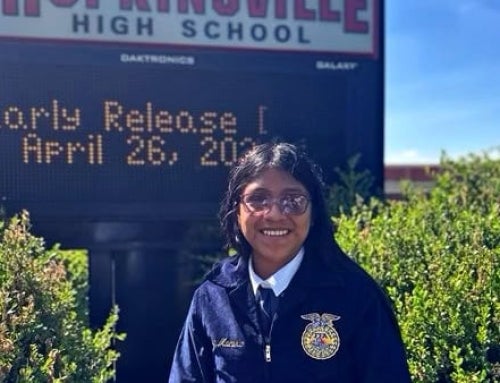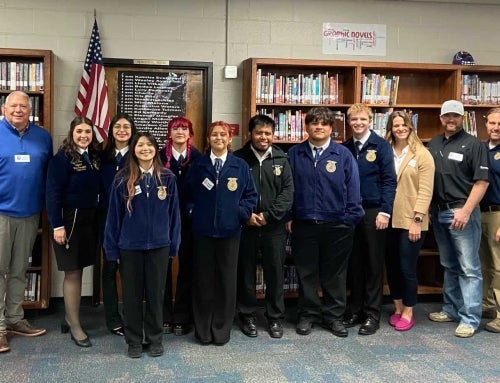With the 93rd National FFA Convention & Expo taking place virtually, more FFA members have the opportunity to attend the FFA Blue Room discussions than ever before, while also enjoying the fresh features available in this new format.
“The 2020 FFA Blue Room is a 3D portal in a virtual space where students can explore innovation and technology, and learn more about the people who are shaping the future of agriculture,” says Kate Wehby, educational specialist with the National FFA Organization. “During in-person conventions in the past, we have been limited in the number of students we could accommodate in the Blue Room, but this year we are able to open up the experience to all attendees.”
As a result, FFA members from across the nation have watched and interacted with presentations from General Mills and Cargill, FFA sponsors that are focused on their respective commitments to promote regenerative agriculture practices. Steven Rosenzweig, a soil scientist with General Mills, took the virtual stage on Oct. 27, and discussed how he came to understand the importance of regenerative agriculture, as well as the work he does to help farmers improve their soil health – both for themselves and the next generation.
“Regenerative ag is a mind-set, and it’s not prescriptive; instead, it’s holistic, and it’s based on principles,” Rosenzweig says. “Through our pilot programs at General Mills, we’re meeting farmers where they are and helping them take the next step on their regenerative ag journeys.”
In addition, Rosenzweig pointed out that farmers making regenerative agriculture a priority are not only helping the environment, but they can also increase their profits along the way.
“Sustainability isn’t a trade-off,” Rosenzweig says. “Farmers do not have to sacrifice their bottom line in order to improve the environment.”
Jill Kolling, vice president of sustainability at Cargill, spoke in the FFA Blue Room on Oct. 28, and highlighted the ways regenerative agriculture can help ensure a safe, responsible and sustainable food system.
“Sometimes people look at agriculture as part of the problem when it comes to things like climate change and water quality issues, but it doesn’t have to be,” Kolling says. “Ag can be part of the solution, and that’s where regenerative agriculture comes in.”
Kolling also mentioned Cargill’s Soil and Water Outcomes Fund, which offers financial incentives to farmers who implement regenerative agriculture practices.
“We’re working with farmers and ranchers to help them get paid for both their crop yield and the outcomes they achieve as they work to improve soil and water quality,” Kolling says. “With this model, sequestering carbon and reducing topsoil runoff can benefit growers in more ways than one.”
Looking to catch another FFA Blue Room presentation? Visit convention.ffa.org/the-blue-room for the full schedule.












